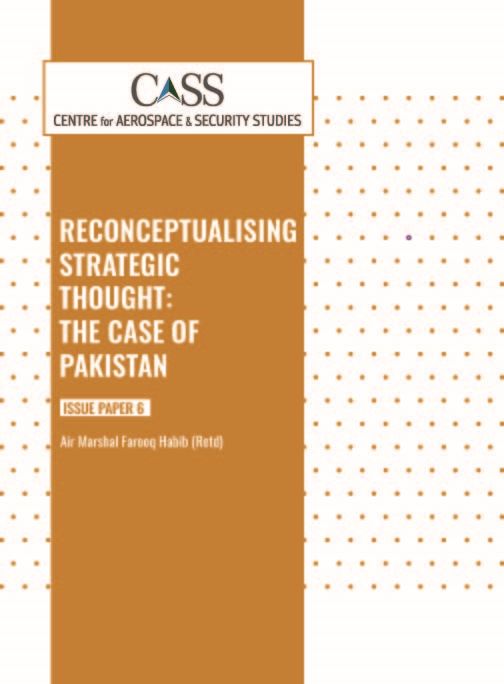Abstract
Conflict has always remained an unavoidable part of human history. Nations gradually evolve a distinct construct of deas and principles, called ‘strategic thought’ in the security lexicon, which guide its application of power in wars. Pakistan, with a long conflict legacy also adheres to certain tenets in its use of military power. Quest for alliances, extraordinary emphasis on combat training, overreliance on irregular warfare, firm resolve to fight offensively, preference of continental strategy and search for deterrence capabilities stand out as major strands of Pakistan’s ‘strategic thought’ which simultaneously reflects its strategic culture and the desire to safeguard national interests. Some of these guiding principles have, however, lost validity in present times, necessitating a case for review. Foremost, Pakistan must pursue geoeconomics as an essential enabler of its strategic thought. Alongside, it should develop a proactive foreign policy while reinvigorating the role of the Foreign Office. There is also a need for renewed focus on air and maritime strategies while striving for an integrated military response. Subscribing to a ‘whole of nation’ approach while being more inclusive in getting inputs and factoring in the internal threats into Pakistan’s strategic thought are essential to address the expansive challenges of hybrid war. Finally, Pakistan must embrace the opportunities offered by emerging technologies in the military domain.




